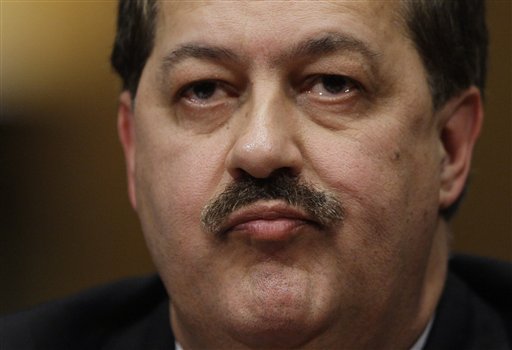Blankenship seeks to limit government’s opening
October 4, 2015 by Ken Ward Jr.
Lawyers for former Massey CEO Don Blankenship filed an interesting motion this afternoon. Here are the basics:
Defendant Donald L. Blankenship respectfully requests that the Court limit the government’s discussion of William Ross in its opening statement to clearly admissible evidence and to preclude any discussion about what Mr. Ross may say unnamed persons told him.
Readers who checked out our Gazette-Mail story this morning may have some clue what this is about:
Since the indictment, additional evidence has emerged about Blankenship from a Delaware lawsuit that Blankenship himself filed to successfully seek to force Alpha Natural Resources, which bought Massey in June 2011, to pay the costs of Blankenship’s legal defense in the criminal case, which, through April 1, amounted to nearly $6 million.
Alpha officials argued in that Delaware case that they did not have to pay Blankenship’s legal costs because they had determined that “Mr. Blankenship had reasonable cause to believe his conduct was unlawful.”
During a trial in early April, several Alpha officials testified about a report that recounted the concerns that Bill Ross, a former MSHA official and Massey safety official, raised about safety at Massey operations.
UPDATED: We have much more on this story on the Charleston Gazette-Mail website tonight.
The Blankenship team’s motion explains:
We understand that the government expects to call Mr. Ross to testify about (a) conversations he had with two Massey executives that were memorialized in a memorandum forwarded to Mr. Blankenship (b) a memorandum he drafted for Mr. Blankenship and (c) a conversation he had with Mr. Blankenship. The parties can make available in camera the relevant documents.
It goes on:
In all of these, Mr. Ross covers a variety of topics relying almost entirely on what he was told by others. Indeed, a substantial component of Mr. Ross’s testimony is based on what he says he heard from unidentified individuals, including supposed quotes from them. Such vague testimony is objectionable as hearsay and as irrelevant and additionally has the effect of denying Mr. Blankenship his confrontation rights under the Sixth Amendment.
The Court will rule on these objections at the time of Mr. Ross’s testimony, but if the Government is permitted to discuss the matter in opening with no opportunity for the Court to review the admissibility of objectionable portions of it, there exists real potential for irreparable prejudice.

 Subscribe to the Coal Tattoo
Subscribe to the Coal Tattoo
